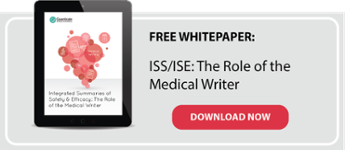
Regulatory medical writing plays a crucial role in the pharmaceutical and biotechnology industries. It ensures that critical clinical and non-clinical data are appropriately documented and communicated to regulatory authorities, facilitating the approval and monitoring of new drugs and medical products. This blog will provide a comprehensive overview of regulatory medical writing, its importance, key documents, and industry best practices.
What is Regulatory Writing?
Regulatory medical writing involves the preparation of scientific documents required by regulatory agencies such as the U.S. Food and Drug Administration (FDA), European Medicines Agency (EMA), and other global health authorities. These documents must adhere to applicable guidelines and accurately present clinical trial results, drug safety data, and other critical information.
What are Regulatory Documents in Clinical Trials?
Regulatory writers produce a wide variety of clinical documents throughout the life cycle of a (potential) treatment, starting with describing and reporting data from clinical trials, through to preparing regulatory submission documents. If the treatment is approved by a regulatory authority, regulatory writers also produce post approval reports on the use of the treatment in patients. Examples of clinical documents produced by regulatory writers most commonly include Investigator Brochures (IBs), Clinical Study Protocols, Clinical Study Reports (CSRs), and the Common Technical Document (CTD). The audience for these documents are often regulatory authorities and ethics committees. The key national regulatory authorities are:
- United States - Food and Drug Administration (FDA)
- European Union - European Medicines Agency (EMA)
- Japan - Ministry of Health, Labour and Welfare Japan
- United Kingdom - Medicines & Healthcare Products Regulatory Agency (MHRA)
- Canada - Health Canada
- Australia - Therapeutic Goods Administration (TGA)
The Importance of Regulatory Writing
Regulatory writing acts as the backbone of drug development, ensuring that every piece of data is communicated accurately to meet compliance standards and ultimately protect patients – including the following:
- Compliance with Regulatory Guidelines – Ensures that documents meet regulatory expectations, reducing approval delays.
- Clear and Accurate Communication – Facilitates the transparent and accurate presentation of data.
- Accelerates Drug Development – Well-written documents streamline the drug approval process.
- Enhances Patient Safety – Clearly documented safety and efficacy data support informed decision-making.
- Meeting Global Regulatory Requirements – Regulatory writers are skilled at adhering to guidance documents such as ICH guidelines, GCP, while fulfilling the needs, preferences, and styles of sponsors and/or study teams.
- Interpretation and Summarisation of Complex Data – Regulatory writers understand, interpret, and summarise often complex scientific and statistical data while providing effective guidance to clinical study teams, which typically include experts from clinical/medical, statistics, regulatory affairs, pharmacovigilance, and pharmacology.
In the ever-changing regulatory environment, experienced regulatory writers can add a lot of value to the production of clinical study documentation. As an integral part of the clinical research process, regulatory writers can act as a pool of knowledge at every step, from protocol development to the drug submission process. Some regulatory writers become experts in a particular therapeutic area or disease and can provide invaluable insights to the sponsors and/or study teams. Regulatory writers can also perform quality control (QC), peer review and provide other editorial support on documents produced by sponsors and/or study teams, if required.
Best Practices in Regulatory Medical Writing
There are several key guidelines and strategies to keep in mind for producing accurate, concise, and inspection-ready regulatory documents. These include:
- Follow Regulatory Guidelines – Adhere to ICH E3, ICH M4, ICH E6 and other regulatory frameworks.
- Ensure Clarity and Conciseness – Use clear and precise language to avoid misinterpretation.
- Collaborate with Cross-Functional Teams – Work with clinical teams, statisticians, PK, PD and regulatory affairs professionals to ensure accurate documentation.
- Maintain Version Control – Keep track of document revisions to ensure consistency.
- Use Standard Templates – Follow industry-standard templates for uniformity across documents.
- Conduct Peer Review and Scientific Review – Engage subject matter experts to validate the accuracy and scientific integrity of the content.
- Perform Quality Checks (QC) – Ensure document accuracy, completeness, and compliance with regulatory standards before finalisation.
- Adhere to Processes, Templates, and Data Sources – Ensure documentation is audit/inspection ready by following established processes, utilising templates, and verifying data sources for accuracy.
Conclusion
Regulatory medical writing is a specialised discipline that plays a pivotal role in drug development and regulatory submissions. It requires a combination of scientific expertise, writing proficiency, and adherence to regulatory requirements. As the pharmaceutical and biotech industries continue to evolve, skilled regulatory medical writers will remain in high demand, ensuring that critical medical documents are prepared with accuracy and compliance.
Quanticate offers a wide range of medical writing services including regulatory writing, publication writing, transparency writing and safety writing in support of any or all stages of the pharmaceutical development life cycle. Our medical writers deliver accurate, timely and cost-effective documents to the highest of ethical and scientific standards. Our team is trusted by top pharma and flexible in our ability to adapt to client systems and standard operating procedures (SOPs). Please request a consultation below if you would like to speak to a member of our team who can support your trial.



